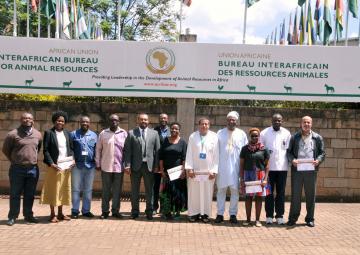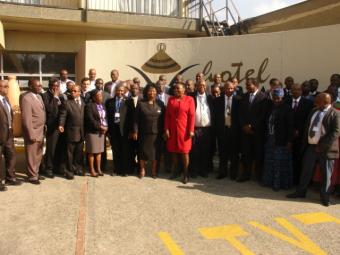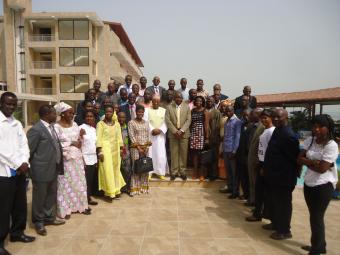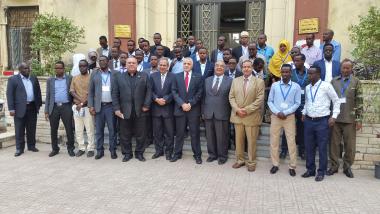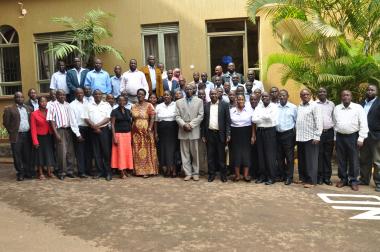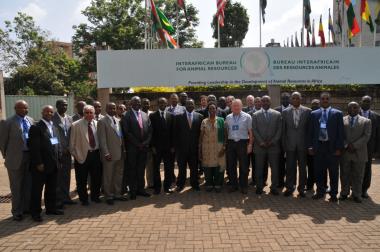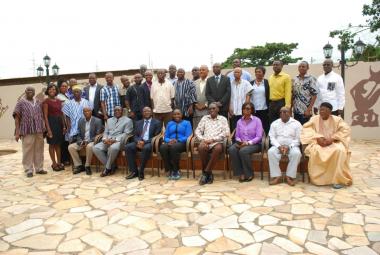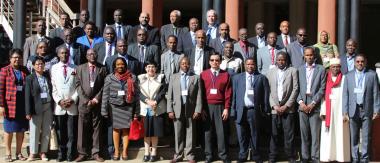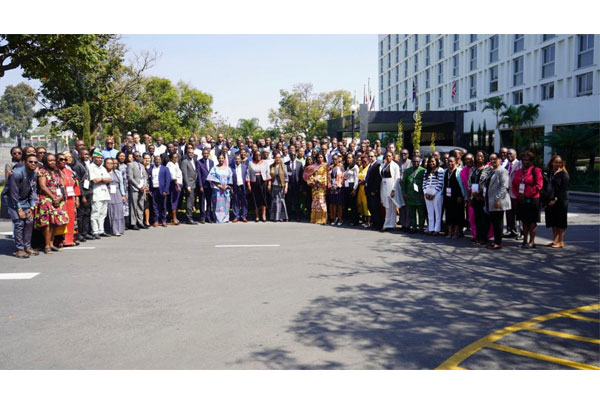
AU-IBAR staff joined other technical experts from across the continent in the validation workshop for the Post Malabo Comprehensive Africa Agriculture Development Programme (CAADP) Agenda. The event being held from July 25 to 30, 2024, in Lusaka, Zambia, aims to provide insights and experiences to shape the Post Malabo agenda for the next 10 years of CAADP implementation. The focus has been on Africa’s agrifood systems and economic growth. The Validation Workshop has been a crucial event aimed at reviewing and refining the progress made since the Malabo Declaration. The workshop has brought together various stakeholders, including technical experts, government representatives, and key figures from AUDA-NEPAD and the African Union Commission (AUC), and structured to facilitate comprehensive discussions, presentations, and validations of the reports generated by the Technical Working Groups (TWGs) on various thematic areas under the CAADP framework.
The opening plenary on July 25th marked the formal commencement of the workshop. Participants were greeted by Mme. Estherine Fotabong, Director of Agriculture, Food Security, and Environmental Sustainability at AUDA-NEPAD, who delivered the welcome remarks. Dr. Godfrey Bahiigwa, Director of the Agriculture and Rural Development Department (ARD) at AUC, outlined the objectives of the workshop, setting the tone for the deliberations to follow. Official opening statements were made by a representative from the Government of Zambia, the Permanent Secretary, and H.E. Josefa Leonel Correia Sacko, Commissioner for Rural Development, Blue Economy and Sustainable Environment (ARBE), emphasizing the importance of the workshop in driving Africa's agricultural transformation.
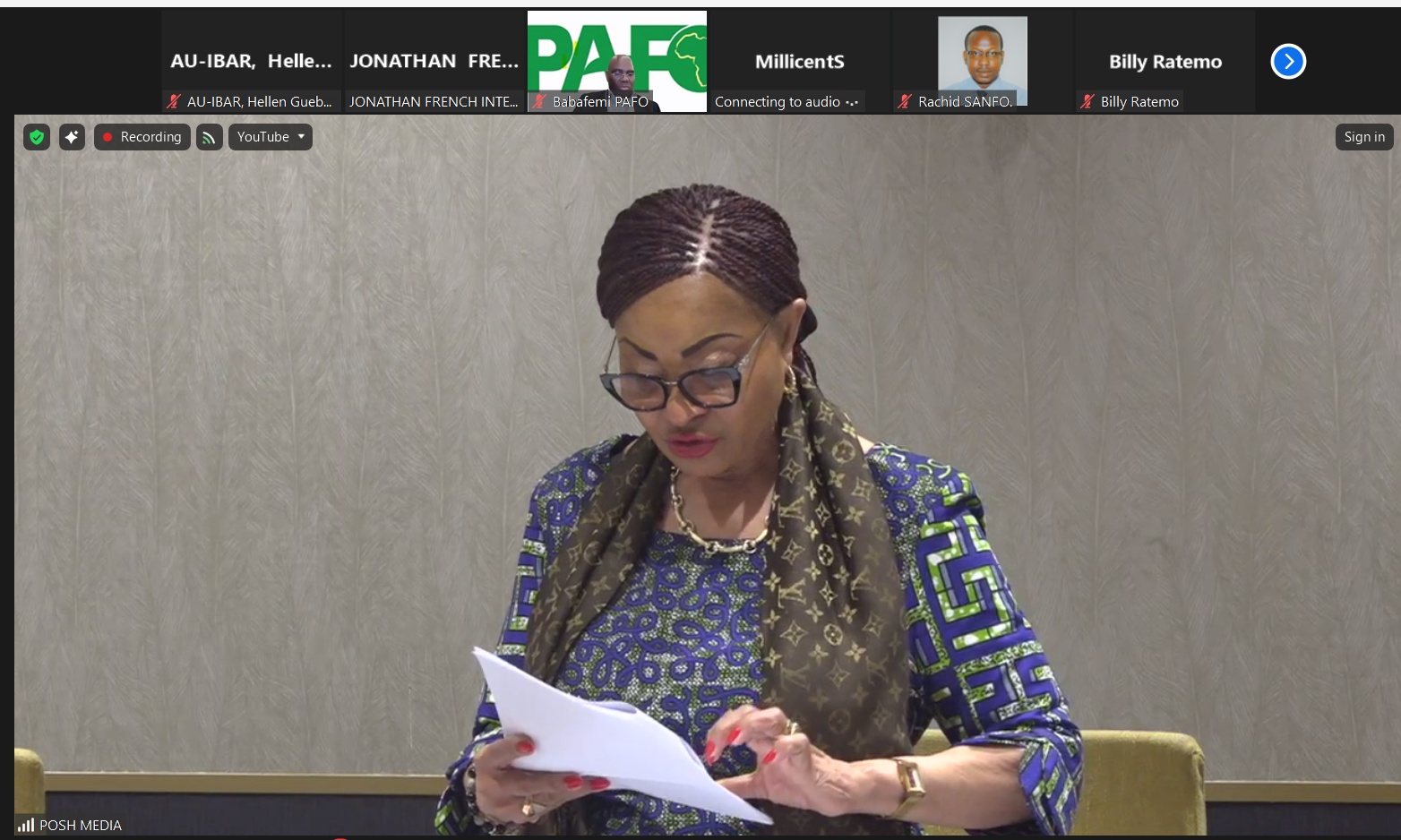
H.E. Sacko (Above) noted that agriculture is crucial for economic transformation, with 70% of Africa's population being rural and reliant on this sector. She highlighted that “Leaders must prioritize the needs of the majority, not just a few, and ensure access to resources like roads, light, and electricity. Digitalization should be prioritized, and programs should come from the root, not the top. Leaders should work together, not in silos, and not allow development partners to do their job for them. The goal is to work together and share lessons with development partners.”
The speech highlighted that the AU has made significant progress in addressing the challenges faced by the continent, such as the COVID-19 pandemic, dependence on imports, and the Russia-Ukraine conflict. The AU is now working on a better 10-year action plan for the Malabo Declaration, which includes eradicating hunger by 2025. However, many countries are still far from realizing these commitments, as shown by the 4th annual review report. Additionally, the AU is working with the World Bank to mitigate the impact of droughts on the continent, particularly in the Horn of Africa. The AU has allocated $2.7 billion for smart agriculture to address climate change impacts.
The first session provided an overview and progress update on the Post Malabo process, presented by Dr. Hamady Diop, the Post Malabo Coordinator. This session highlighted the key milestones achieved and set the stage for the detailed discussions to follow. The workshop then transitioned into presentations by the TWGs, with each group presenting draft reports on their specific areas of focus. These sessions were facilitated by experienced moderators, including Dr. Manyewu Mutamba of AUDA-NEPAD, Dr. Janet Edeme of AUC-DARBE, and Dr. Augustin Wambo Yamdjeu from AKADEMIYA2063, among others. The presentations spanned multiple sessions, covering a range of topics critical to the CAADP agenda.
Participants engaged in in-depth discussions on the reports presented, providing feedback and suggesting refinements to ensure the reports accurately reflected the current status and future directions of the CAADP agenda. The workshop featured parallel sessions where TWGs held detailed discussions to review, revise, and finalize their reports. This iterative process ensured that all relevant aspects were thoroughly examined, and consensus was reached on the key recommendations.
On 29th July, the workshop concluded with the closing plenary session, where the final reports from the TWGs were presented. The presentations covered all thirteen TWGs, providing a comprehensive overview of the findings and recommendations. The session also focused on outlining the next steps for implementing the recommendations, ensuring that the insights and strategies developed during the workshop would be translated into concrete actions. The workshop is expected to conclude with a stock-taking meeting involving AUDA-NEPAD, AUC, and AKADEMIYA2063 on July 30th. This meeting has been a crucial step in aligning the efforts of the different organizations involved and setting the stage for coordinated implementation of the CAADP agenda across the continent.
Overall, the Validation Workshop for the Post Malabo CAADP Agenda was a pivotal event in advancing Africa's agricultural transformation. It provided a platform for thorough review, constructive discussions, and strategic planning, all aimed at ensuring the effective implementation of the CAADP goals. The commitment and collaboration displayed by all participants underscored the shared vision of achieving food security, economic growth, and sustainable development across the African continent.
The Post Malabo Agenda, launched in March 2024, is a consultative process with input from countries, regional economic commissions, communities, and research institutes. The end result will be a 10-year action plan adopted during the extraordinary summit planned for early 2025 in Kampala, Uganda. Since the launch of the Post Malabo Agenda in March 2024, the AU has received five regional consultation reports and nearly 50 memorandums from various stakeholders, demonstrating the importance of the continent's place in transforming African agriculture.
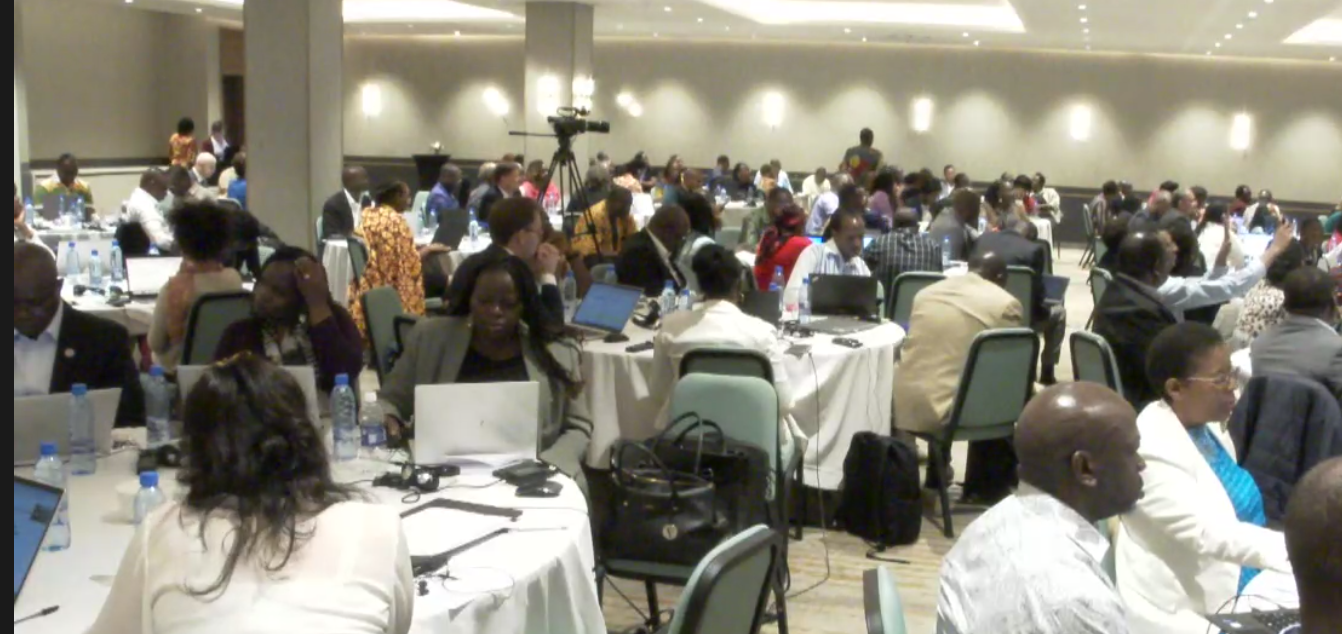
Technical Working Groups are critical components of the Comprehensive Africa Agriculture Development Programme (CAADP) implementation framework, focusing on various thematic areas essential for agricultural transformation and food security across Africa. The TWGs focus on several key areas, including upholding the principles and values of the CAADP process, enhancing investment finance in agri-food, addressing food security, nutrition, health, and food safety, exploring emerging technologies, halving poverty through inclusive agricultural growth, boosting intra-African agri-food trade, enhancing livelihood resilience, addressing climate change mitigation and adaptation, and promoting inclusivity and equality in agri-food systems. Each TWG plays a crucial role in advancing the objectives of CAADP, contributing to sustainable agricultural development, food security, and economic growth across Africa. The TWGs also work on developing a robust theory of change and results framework, strengthening implementation and coordination capacity, and managing communication, advocacy, and knowledge management.
Read More
African continent must get it right in the agriculture sector – Josefa Sacko
Concrete policies needed to aid the African continent in realizing agriculture development targets, AUDA-NEPAD
CAADP embraces inclusivity and resilience in food systems

